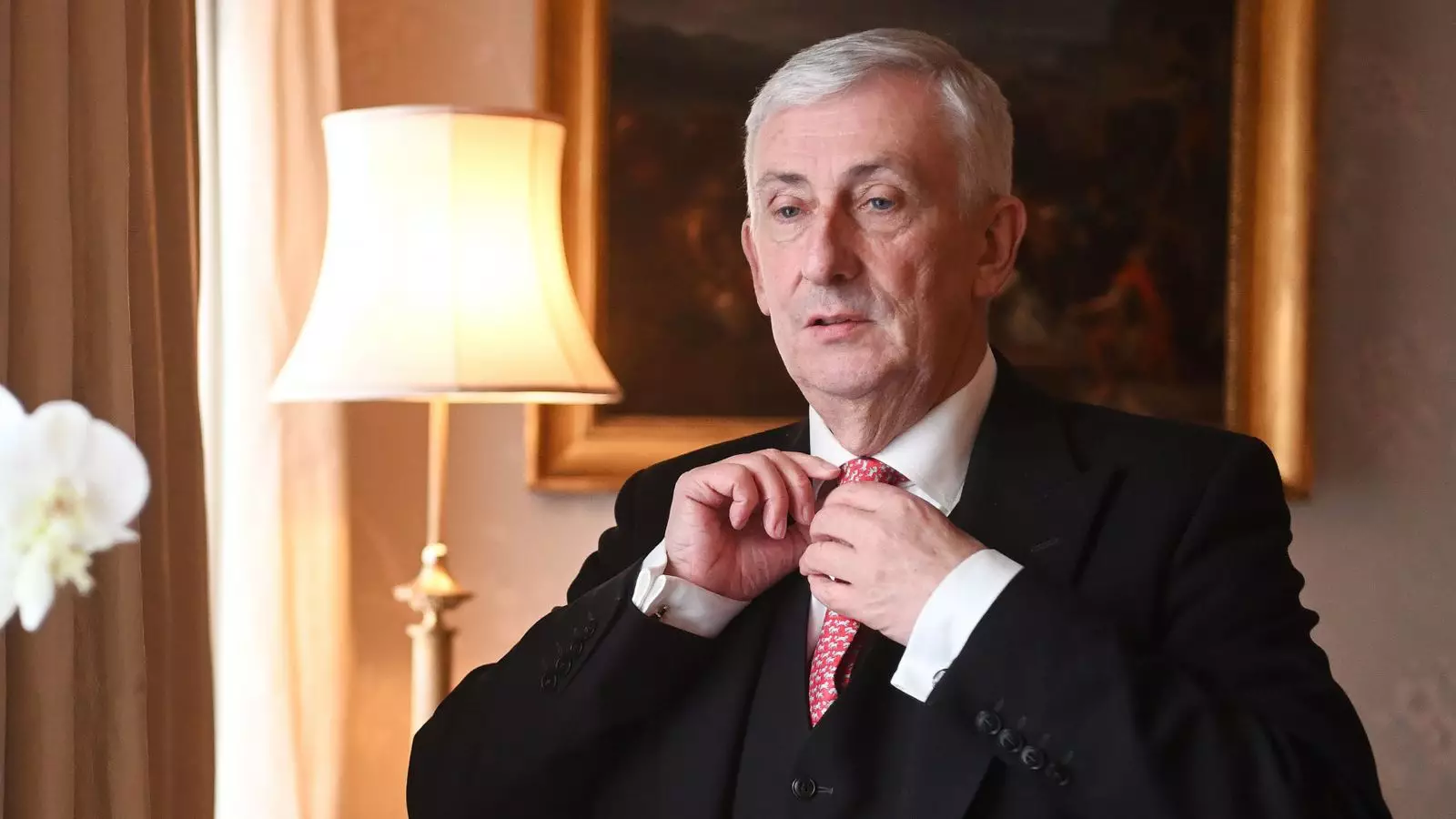The recent debacle surrounding Commons Speaker Sir Lindsay Hoyle and the handling of the debate on Gaza has raised serious questions about potential political influence. Both the SNP and the Tories have accused Labour of trying to influence the Speaker’s decisions, leading to chaos in the chamber. Sir Lindsay is now facing calls to “come clean” about his communications with the Labour leadership, as MPs question the fairness and integrity of the process.
The SNP has accused Sir Lindsay of colluding with Labour to allow their amendment to be voted on first, leading to the disruption that followed. The Tories have echoed these accusations, with health minister Maria Caulfield calling for transparency from the Speaker. Labour, on the other hand, has denied any wrongdoing and suggested that the Tories boycotted the proceedings due to their own concerns about rebellion within their ranks. The conflicting narratives have only added fuel to the fire, with tensions running high in the aftermath of the chaotic debate.
Pressure on the Speaker
With 57 MPs signing a motion of no confidence in Sir Lindsay, the pressure is mounting for him to resign from his position. The row over the handling of the Gaza debate has brought his leadership into question, with both opposition parties and members of his own party expressing doubts about his ability to impartially preside over future debates. Calls for his resignation are only expected to grow louder in the coming days as the fallout from the controversy continues to unfold.
As the Speaker of the House of Commons, Sir Lindsay is expected to uphold the principles of fairness and impartiality, ensuring that debates are conducted in a transparent and respectful manner. However, the events surrounding the Gaza debate have called into question his ability to fulfill this role effectively. The Speaker’s discretion in selecting amendments is a crucial aspect of his position, and any perception of bias or political influence can undermine the integrity of the entire parliamentary process.
The fallout from the Gaza debate has far-reaching implications for the future of parliamentary proceedings and the role of the Speaker. The calls for Sir Lindsay to resign underscore the need for accountability and transparency in the highest levels of government. The Speaker’s handling of this controversy will set a precedent for how future debates are conducted and the level of trust that MPs and the public can place in the parliamentary system. It is crucial that Sir Lindsay addresses the concerns raised by MPs and the public, and takes decisive action to restore trust and confidence in his leadership. Failure to do so could have long-lasting consequences for the integrity of the House of Commons and the reputation of the Speaker’s office.


Leave a Reply